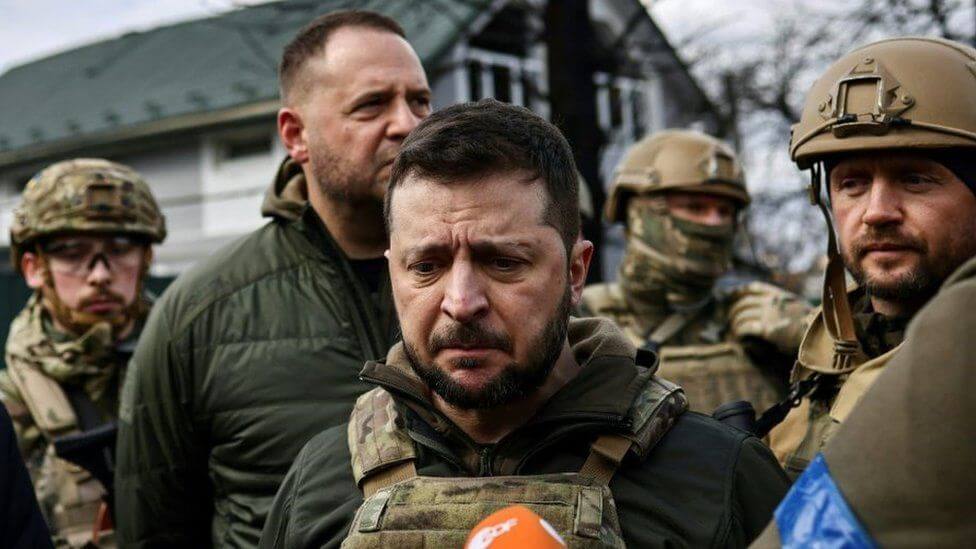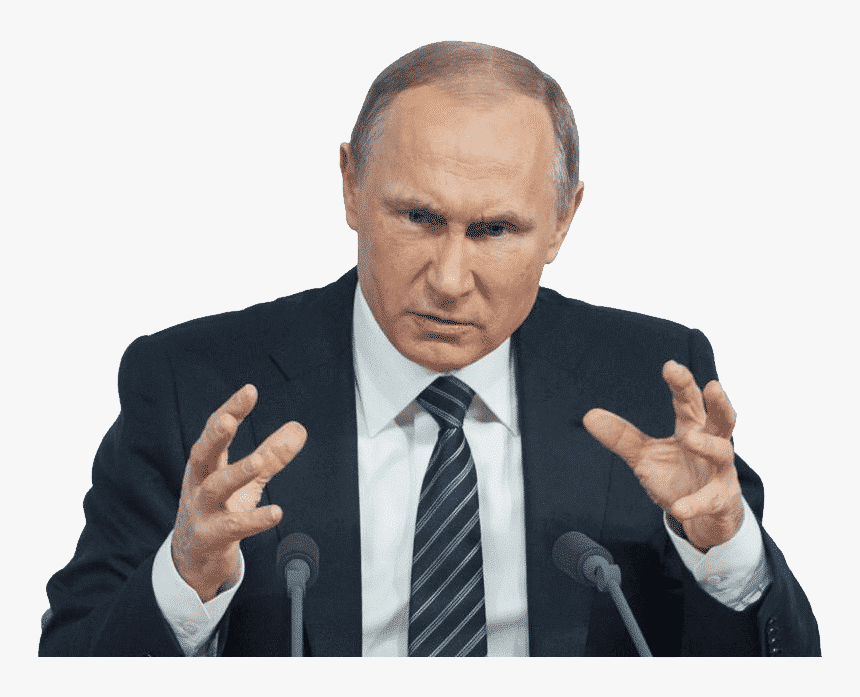
Interesting Times – War and The Potential for Famine
“May you live in interesting times” is an English expression that claims to be a translation of a traditional Chinese curse. While this expression appears to be a positive statement, it is normally used ironically. In other words, it is saying that life is better in “uninteresting times” of peace and calm rather than in “interesting” ones, which are usually times of trouble, war, and famine.
As we consider recent events, it would appear that we have certainly been living in “interesting” times for the last two years. First, there was the most lethal and disruptive Coronavirus pandemic since the Great Influenza Epidemic of 1918 to 1920. And then, just as most countries were getting over the worst of that problem, Vladimir Putin decided to invade Ukraine; thereby he plunged Eastern Europe into a major crisis with much loss of life and property, giving rise to a huge refugee problem which is still ongoing. And no one currently knows how long this will all last nor the long-term effects, and when, if ever, things in Ukraine and Russia will return to how they were.

Among the consequences of the current war is a developing problem in the agricultural heartland of Ukraine. This problem has to do with a potential shortage of staple foodstuffs produced there, particularly Ukrainian corn and wheat. Long known as the breadbasket of Europe, the rich fertile soil of Ukraine provides 11.5% of the total world production of wheat. But this war is disrupting the potential for Ukraine to reach this level of production in 2022 in many ways.
First of all, how can farmers plant crops and look after them when battles occur near to or on their land? And in any case, many Ukrainian men are away with their military units, so who is left to do the farm work? Then consider the destruction wrought in fields that have been sown with landmines. All those fields will need to be swept clean before it’s safe to farm them.
Next, there is a shortage of fertilizers for the crops because Ukraine and Russia are two of the main sources of these essential supplies. Fuel oil is also in short supply as Russian oil and gas are now no longer available to Ukraine.
Russian missile attacks on fuel depots have also aggravated this fuel situation. And finally, as if all that were not bad enough, Russia has military control of the Black Sea;l this means that no cargoes of grain can be safely exported from Ukraine’s ports, even from the ones still under Ukrainian control. Of course, there are always ways in which resourceful farmers and distributers can adjust to things and get around various obstacles. Still, such improvisation can only be a partial solution to these major problems. Both production and delivery of Ukrainian grain are sure to be hit to a great extent.
There is also the fact that Ukraine needs to feed itself. Therefore, it has had to ban or limit exports of wheat, sugar, buckwheat, barley, and oats, as well as beef and poultry. This is understandable because the Ukrainians don’t want to run out of food themselves.
But looking at all this from the viewpoint of the countries that would normally buy Ukrainian wheat, they are bound to struggle to make up for the shortfall. Russia, which produces 16.8% of the world’s wheat, has also decided to ban or limit exports of wheat. Some observers say that Putin has decided to use food as a weapon, knowing full well that this could be the last straw for some third-world countries which were already struggling with the aftereffects of both COVID and the economic disruption it brought.

The lack of bread was one of the reasons behind the Arab Spring protests in 2011. It will likely lead to similar social problems in the Middle East and Africa if it occurs again. And even if there is bread available, its price might be so high that most of the population will not be able to afford to feed themselves satisfactorily.
Some countries, for example, Ivory Coast and Senegal, are weighing in with subsidies on staple foodstuffs, even those items not normally imported from Ukraine. This is because general inflation was already running high due to high oil prices resulting from sanctions on Russian oil exports. In turn, these high oil prices have had a knock-on effect on the expense of transport and storage.
So now, over a quarter of the world’s wheat is no longer available for purchase on the world market. The result is that there will be price increases all-round, which will be the main effect noticed by the richer countries. But there will also be shortages, and possibly severe shortages, in the poorer countries.
In recent years, due to various factors such as climate change, harvests have not been particularly good in certain places. For example, Morocco has had a series of poor harvests, which would normally have made up any shortfall from imports. But how are the likes of Morocco to proceed if there is nothing to import?
This once again illustrates the importance of ensuring global supply chains for essential commodities. During the recent COVID lockdowns, many observers noted this problem with the global economy: products made in one place were simply unavailable in other locations where they were needed.
In the last few years, the world has dealt with pestilence, and it just about made it through that. Now we have war, and it looks very likely that a food shortage might be following closely behind. Pestilence, war, and famine; even one of these would have been a challenge for governments to deal with, but coming one after the other, seems like an impossible task. But many lives will depend upon finding solutions. An end to the war might be a good place to begin.
But in the meantime, both countries and companies will need to approach this major problem of how to secure enough supplies. In an article on food insecurity (https://www.dw.com/en/ukraine-war-increases-global-food-insecurity/a-61206423), Simone Pott of German NGO Welthungerhilfe said, “Enough food is being produced to feed the whole world. But it’s not being produced where people urgently need it.
The current crisis has shown that countries heavily dependent on Russian and Ukrainian imports have failed to invest in their own production and rural development.” In the long term, maybe more land can be used to produce wheat in various places around the world. Still, in the short term, the supply will need to come from developed economies, such as the EU and America, which have grain stocks. Otherwise, there could be famine on a huge scale.




